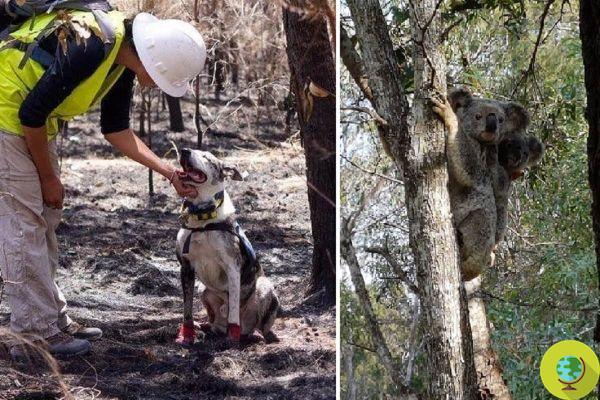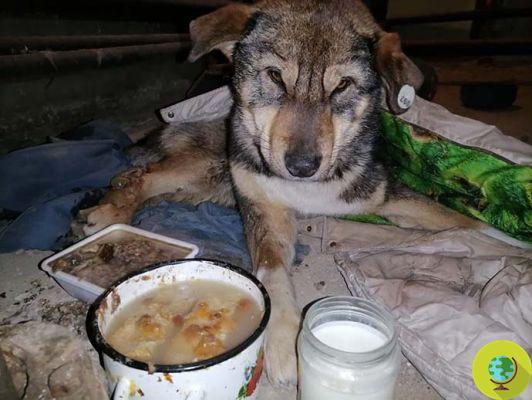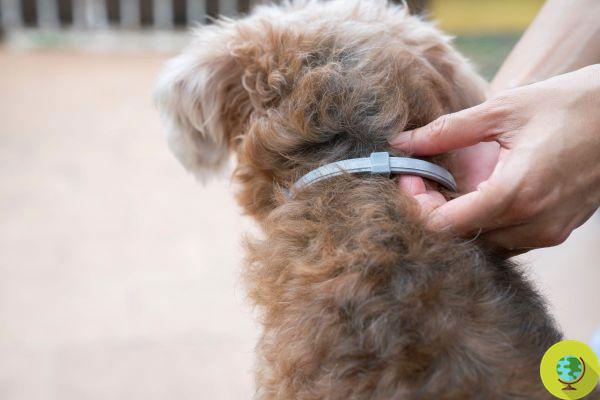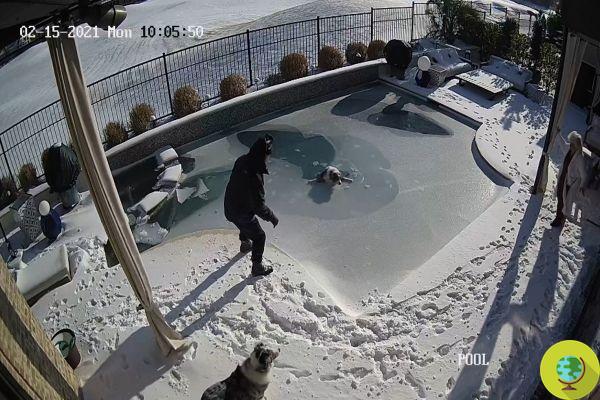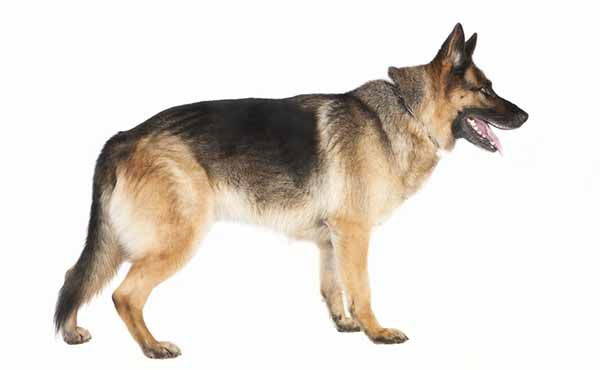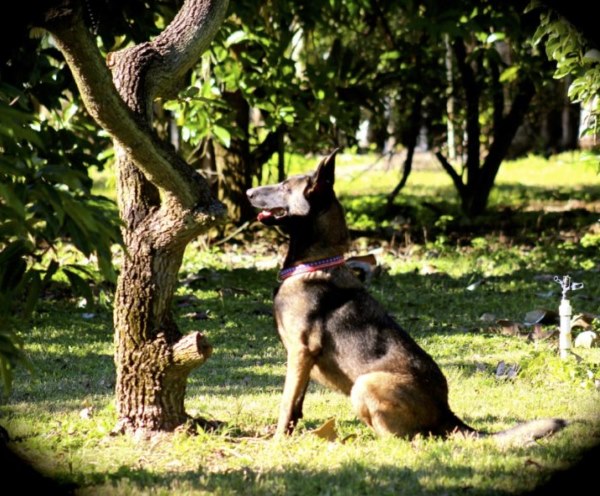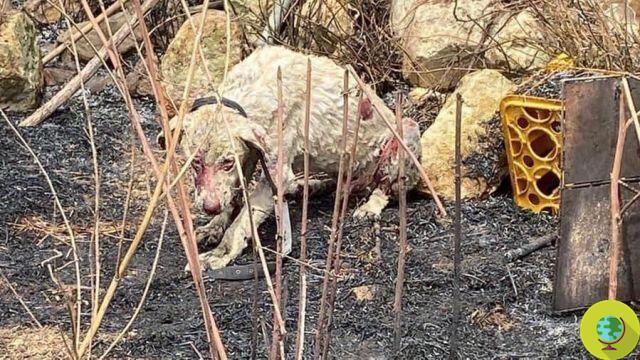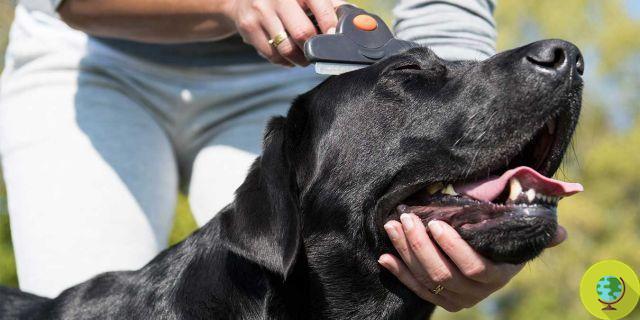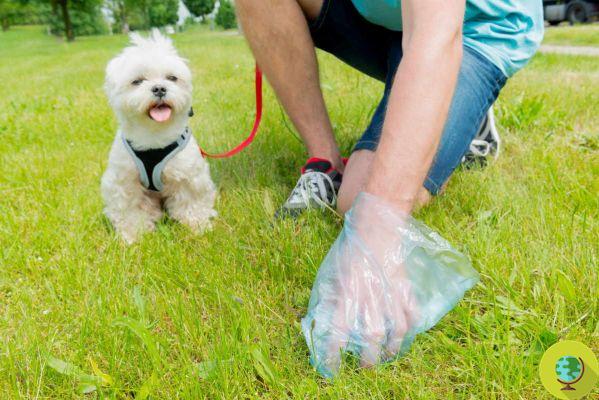
The urine and feces left by dogs damage the biodiversity of parks and nature reserves, making the soils extremely rich in nitrogen and phosphorus: this is revealed by a new study conducted in Belgium
He is about to end up run over, his mother saves him
Leaving dog feces on the street or in parks is not only uncivilized, but can pose a threat to biodiversity, hitherto rather underestimated by scientists. In fact, a new study conducted in Belgium has shown that the manure and pee of our four-legged friends lead to an excessive level of fertilization due to nitrogen and phosphorus they release into the ground. One might think that it is a natural fertilizer that may prove useful, but apparently it is not. Indeed, wild fauna and flora could be endangered by these substances.
Too much nitrogen and phosphorus in the soil released from dog urine and feces
The researchers ofGhent University they estimated that each year the faeces and urine of dogs add about 11 kg of nitrogen and 5 kg of phosphorus per hectare to the nature reserves around the Belgian city of Ghent. A very high figure that amazed the scientists themselves.
We were surprised at how high the nutrient intakes from dogs could be. - admits Professor Pieter De Frenne, lead author of the research, which appeared in the journal Ecological Solutions and Evidence - Atmospheric nitrogen inputs from agriculture, industry and traffic rightly receive a lot of political attention, but dogs are completely neglected by this point of view.
To evaluate the effects of the release of canine feces and urine on the ecosystem of Belgian parks, the team of researchers monitored the presence of dogs in the four nature reserves in the area around the city of Ghent, over a period of 18 months. and considered multiple scenarios: what would happen if owners kept dogs on or off a leash and if they collected dog droppings.
?New analysis now published @AER_ESE_BES @BritishEcolSoc
Dogs??? as fertilizers of woodlands? and nature reserves☘️
➡️We found that dog urine & faeces? bring in substantial amounts of nitrogen & phosphorus (average c. 11 kg N and 5 kg P/ha/yr!)
?️https://t.co/c2gtaqh6Ae pic.twitter.com/cZfKQ3T6X0
- Pieter De Frenne (@PieterDeFrenne) February 7, 2022
In the event that all dogs were kept on a leash, we found that in these concentrated areas around the trails, nutrient inputs of both nitrogen and phosphorus exceeded the limits considered legal for the fertilization of farmland. - Professor De Frenne points out - Which is quite astounding since our study was about nature reserves!
In this scenario, scientists estimated the presence of around 175 kg of nitrogen and 73 kg of phosphorus per hectare in one year. The situation changes when owners, in addition to keeping dogs on a leash, collect the feces of their pets. In that case, the soil fertilization levels they are reduced by 56% for nitrogen and 97% for phosphorus.
In many nature reserves, the aim is to lower nutrient levels in the soil to improve plant and animal biodiversity. This can be done through methods such as mowing and hay removal - explains De Frenne. Our findings suggest that currently neglected dog-related inputs may delay restoration goals in wildlife reserves.
In light of this new research, the team from the University of Ghent hope that the institutions and managers of parks and reserves will be able to raise awareness among the citizens of Belgium (but also the rest of Europe) on the issue, imposing the use of a leash and collection of dog feces to avoid harm to wildlife.
Fonti: University of Ghent/ Ecological Solutions and Evidence
Read also:
- How to make natural repellents to eliminate the smell of dog urine
- How to dispose of the poo of our dogs
- These cows have been trained to do it "in the potty" to reduce emissions, but the real problem remains us





